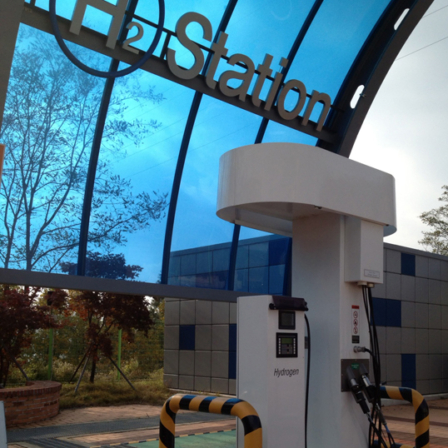Sustainability – what does it mean to you? The chances are it suggests putting a foot on the brakes of development, or a degree of austerity and shortages. It might imply the need to cut back one’s consumption of energy, food and water. It can lead to some pretty gloomy conclusions.
Resource wisdom is a concept devised to convey a more positive take on sustainability issues. There’s no denying that energy, food, transport, water and waste are pretty serious subjects, but a shift in attitude and a more holistic approach to resources can open up new opportunities and innovations. This new approach can concentrate on the positive impact of sustainable policies in communities rather than dwelling only on the negative impact of the challenges.
“We need to decouple resource efficiency and well-being from the negative impacts on humans and the nature of shortages,” explains Johanna Kirkinen, specialist in Ecological Sustainability at Sitra. “Natural resources and their use are at the core of sustainable development. But we need to ask how we can generate positive feedback from increasing the efficiency and effectiveness of natural resources, as well as other resources, such as knowledge, facilities and machinery. Resource efficiency alone is not a good target, since it is a relative term.”
Resource wisdom takes a more cross-sectorial and holistic approach, says Kirkinen: “We should not only focus on one sector such as energy, since it may lead to partial optimisation. Resource wisdom seeks answers to ecological, economic and social questions. It is not only about emission cuts, but also about seeking opportunities – how we can achieve well-being with less use of resources.”
Walking the talk
Any theory is only as good as how it is put into practice, and in this case there are several convincing examples of how communities are “walking the talk” for resource wisdom. Kirkinen points to the One Planet Living approach adopted by the Brighton & Hove City Council in England as part of its progressive three-year Sustainability action plan. The council has listed a series of outcomes which it plans to achieve in the period up to 2015: a strong and low carbon economy; a fair balance between the needs of pedestrians and cyclists, public transport users and motorists; a low waste city; a healthier and higher quality built environment; protection and enhancement of the city’s natural environment; and the dignified and decent treatment of animals.
“One Planet Living is a great example of a simple framework that can be used in cities or companies when aiming towards resource-efficiency and sustainable development where we would use resources to increase equality and well-being for future generations,” says Kirkinen.
“Cities of the future will be threatened by the uncertainty of the economic environment, resource scarcity and environmental and climate change impacts. These threats can affect a number of sectors: energy, food, water, transport and waste. Resource wisdom takes a holistic view of these factors combined, and highlights new approaches to threat management and innovation, promoting sustainable ways of living.”
She also cites the Danish initiative Sustainia as “a modern and very practical example of how can we move towards sustainability.” Sustainia’s mission is to “make the world see the benefits of sustainable living”, offering solutions in ten sectors: buildings, food, fashion, transportation, IT, education, energy, health, cities and resources. The approach is not to place each sector into its separate silo, however, but to promote ideas and solutions that are easy to implement across the whole sector range. Bringing together NGOs, companies and various institutions, Sustainia does not refer to resource wisdom but might be summing it up in its intention to “inspire and motivate instead of scare people with gloom and doomsday scenarios”.
Sustainia promotes concrete examples by presenting an annual award – a prize that went to the UK-based Azuri Technologies in 2012 for its “pay as you go” solar panel technology, making this clean and low-cost electricity source more readily available to low-income families in Africa.
In Finland, Sitra is working with the city of Jyväskylä to provide expertise and know-how related to resource wisdom. “Sitra is an independent actor whose task is to assure the development of Finland towards sustainable well-being,” Kirkinen concludes. “We can bring different parties together to discuss these complex issues and develop solutions. We are funding the development of a national model towards resource efficiency. This model is at first being developed together with the city of Jyväskylä where it will also be tested. International aspects are also really interesting for companies. We’re focusing at a local level for now: the problem of resource scarcity is global but manifests itself at a local level.”
Tim Bird




Recommended